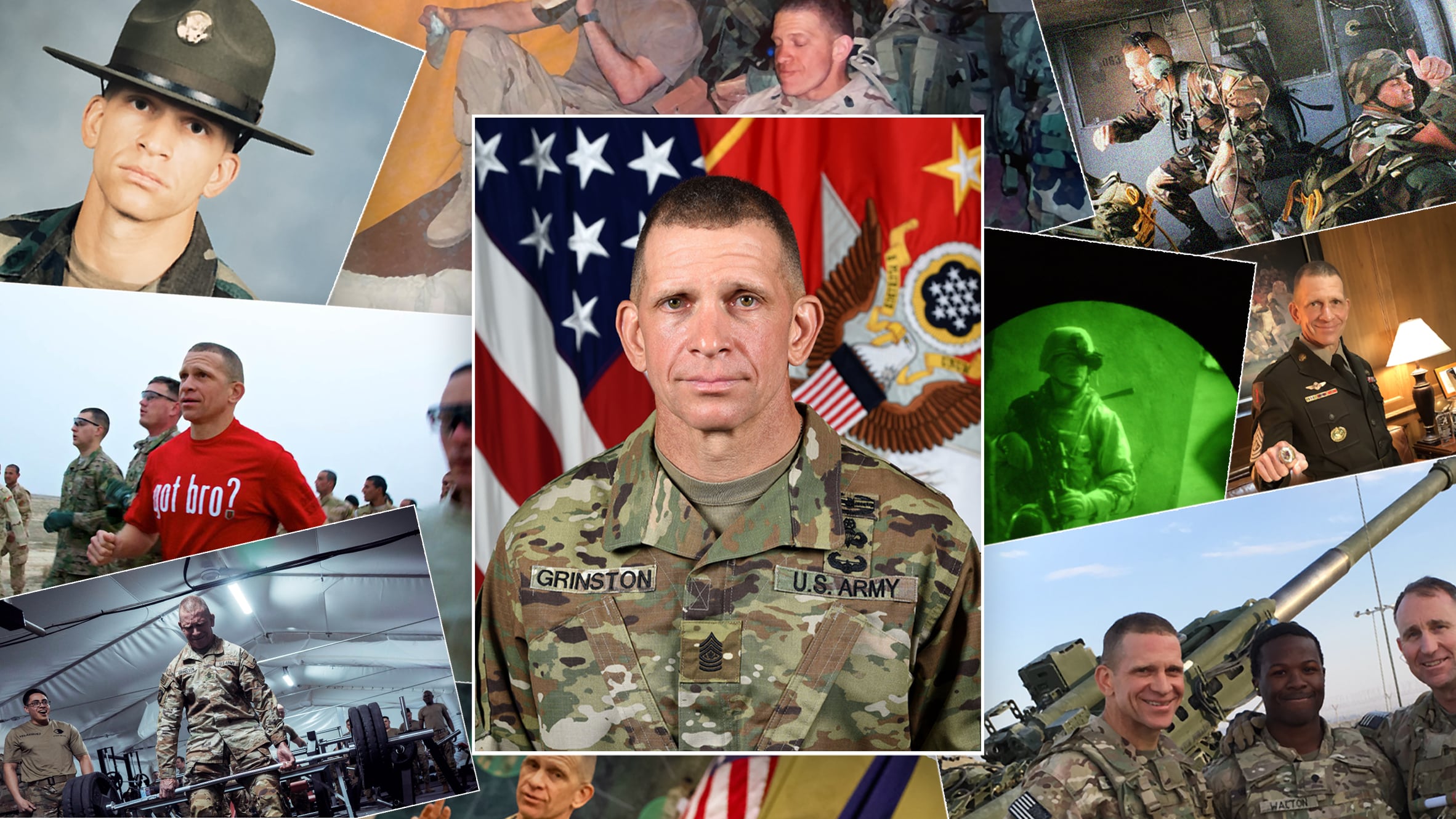The Army’s new top noncommissioned officer is the odd man out in his family.
In a Wednesday media event preceding his Friday assumption of responsibility as the 17th sergeant major of the Army, Sgt. Maj. Michael R. Weimer confessed that he deviated from the footsteps of his forebears.
“My father was an officer, and my grandfather was an officer,” Weimer said. “My daughter’s on a journey to actually be an officer.”
Weimer said he wanted to be a noncommissioned officer almost from the start of his military career, though he admitted he’s “not sure” he understood why at the time. Now he’s the service’s top enlisted soldier after nearly three decades in the special operations community.
Asked what he would consider to be a metric of success for his tenure as sergeant major of the Army, Weimer explained the importance that enlisted leaders play in making the Army “the envy of the world.” His response echoed one of the “truths” of special operations: humans are more important than hardware.
“We always talk about modernizing the tank — absolutely critical. Modernizing the Next [Generation] Squad Weapon — absolutely...all are critically important,” he said. “[But] modernizing, innovating professional development, leader development to the leaders that we’re going to need for 2030, 2040? I’m passionate about that. That’s what I’m going to talk about four years from now.”
Weimer said that he believes improving the quality and engagement of NCO leadership will play a key role in reducing persistent challenges with suicides, sexual harassment and assault, and other quality-of-life issues. He said he wants their training pipeline to better resemble real life, and that he wants real life to better resemble best practices.
“If I go to [professional military education] and I see what right looks like, but then I go back my unit at whatever echelon I’m at, and the two don’t match up, there’s an issue there,” he said.
The service’s new top enlisted leader said he’s also “passionate” about instilling a “warrior mindset” up and down the ranks. Weimer acknowledged that doing so will look different for soldiers across the service’s diverse career fields, though.
Ultimately, as the service reorients its force structure, tech and doctrine to prepare for potential large-scale conflicts with enemies like China, Russia or Iran in the decades ahead, Weimer wants to ensure that its people are ready too.
“The goal is to be so lethal and so intimidating that you deter any of our adversaries [from] actually wanting to go to large-scale combat operations,” he said. “Nobody wins from large-scale combat operations[.]”
Weimer will take the reins from Sergeant Major of the Army Michael Grinston, who retired after nearly 36 years of service.
RELATED

Grinston’s tenure included significant strides in changing how Army leaders communicated with the public, an overhaul of the service’s fitness culture, and more.
Weimer acknowledged that Grinston’s work online and in the media was “unprecedented...they will be called pathfinders in that space.” Grinston’s public affairs team won praise — and sometimes criticism — for its use of platforms like Reddit. Yet it’s not clear what public persona Weimer will assume after a long career of operating in the shadowy special operations realm.
“How it’s going to look for me, I don’t know,” he said. “I do know I want to be engaged.”
He also hedged, noting that “there’s still different opinions on access” to senior leaders — and time and resources spent on maintaining active and engaging online presences “come at a cost.”
But one thing is less ambiguous. Weimer is a fan of the Army Combat Fitness Test, and said that he believes in continuing the fitness culture shift that Grinston masterminded. He added that it’s an important part of his focus on a warrior mindset.
“We absolutely needed to be doing more than sit-ups, push-ups and [a] two-mile run to be true professionals in the profession of arms,” he argued, referencing the exercises from the now-obsolete Army Physical Fitness Test that the new assessment replaced. And the struggle continues.
“It’s really just one phase in the journey to change the [fitness] culture,” he said. “Culture takes time to change.”
Davis Winkie covers the Army for Military Times. He studied history at Vanderbilt and UNC-Chapel Hill, and served five years in the Army Guard. His investigations earned the Society of Professional Journalists' 2023 Sunshine Award and consecutive Military Reporters and Editors honors, among others. Davis was also a 2022 Livingston Awards finalist.




